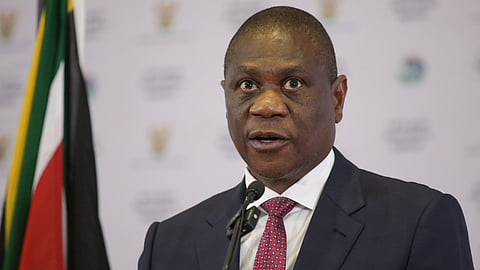RW Johnson: The elephant in the room – deputy president Paul Mashatile
Amidst the election chaos, the rise of Paul Mashatile as deputy president echoes historical struggles within the ANC. Accusations of corruption surround Mashatile, mirroring a pervasive culture in Gauteng politics. Facing legal battles, Mashatile seeks refuge within ANC structures, forming unlikely alliances with the EFF and Patriotic Alliance. As the ANC's future hangs in the balance, potential coalitions may usher in a compromised leadership, intensifying factional conflicts. The spectre of state capture looms, threatening South Africa's ability to address pressing economic and social challenges.
Sign up for your early morning brew of the BizNews Insider to keep you up to speed with the content that matters. The newsletter will land in your inbox at 5:30am weekdays. Register here.
By RW Johnson
Amidst the hurly-burly of the election campaign it is easy to miss the small elephant in the middle of the room, though there is no doubt that this elephant will grow rapidly in size over time. I refer to the election of Paul Mashatile to the post of Deputy-President. One should cast one's mind back to 1998-99 when Mandela had decided to step down and Thabo Mbeki was already his ordained successor.
___STEADY_PAYWALL___

